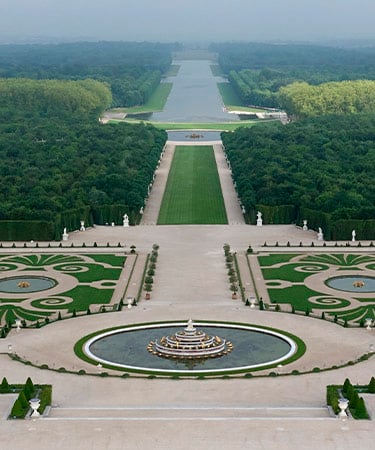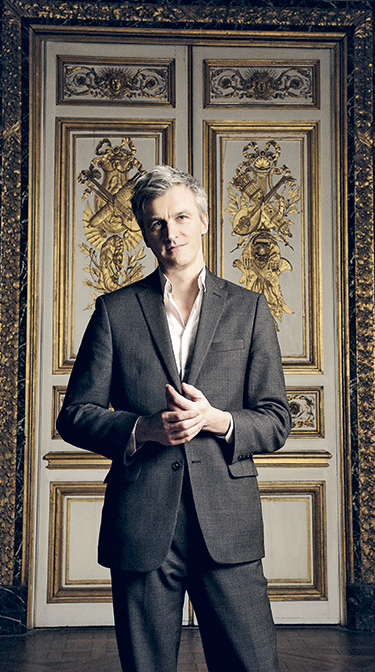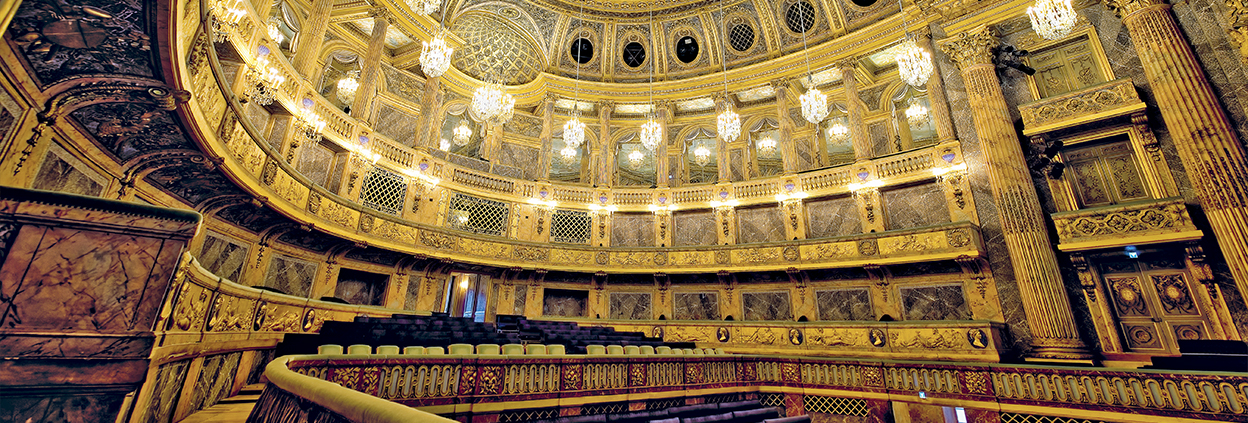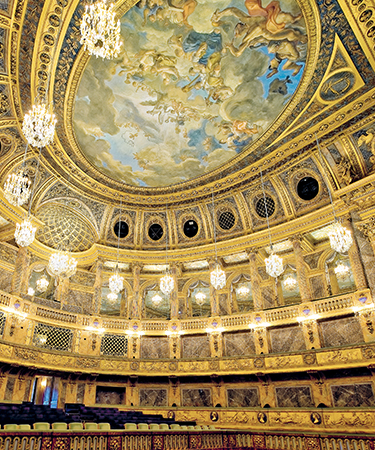Cast
Ana Quintans Soprano
Cyril Auvity Tenor
Marc Mauillon Baritone
Igor Bouin Baritone and Narrator
Virgile Ancely Bass
Le Poème Harmonique
Vincent Dumestre Conductor
Presentation
Happy birthday, Molière! Le Poème Harmonique and Vincent Dumestre celebrate through music the prince of French playwrights, who in 2022 marked his 400th anniversary. Enjoy the music from Le Bourgeois gentilhomme, Monsieur de Pourceaugnac, La Pastorale comique, and other airs that make up their rarely performed “soundtrack.” When Baptiste meets Baptiste…
Show moreLet’s go back to 1661. Just married, the Sun King buries Mazarin and takes control of the kingdom. In the same year, Molière, the Parisian, and Lully, the Florentine, present their first comedy-ballet Les Fâcheux at Fouquet’s place in Vaux-le-Vicomte. The following decade, filled with pleasures and celebrations, will be marked by their inventions. These pieces, combining song and dance, create a cosmopolitan, whimsical universe: Neapolitan rogues in Pourceaugnac, false Turks in the famous march, who knight Monsieur Jourdain, the new mamamouchi. Carnivalesque scenes, where madness calls upon singers and jugglers in wild chaconnes and passepieds. Yet, music still cradles the pastoral sweetness of George Dandin, with its shepherd airs from Eden, or the love-filled meanders of Psyché, which pour out in an Italian lament. Supported by royal favor, the duo expands the forces of the orchestra, bringing together as many as five or six voices in the ensembles.
The idyll, alas, will succumb to jealousy and ambition. Envious of the benefits Molière receives, which are poorly shared from his theater at the Palais-Royal, Lully takes advantage of the tuberculosis that strikes his former partner in 1672 to gain the exclusive rights to a new form of performance: opera. There, the Florentine will continue the journey of French lyric art, begun with his playwright friend. When Molière returns to the stage, he can no longer choose the number of his musicians. The rift is complete. Molière will die on stage during a performance of Le Malade imaginaire, set to music by Charpentier. Adding insult to injury, Lully reclaims the Palais-Royal theater from his orphaned troupe.
From these separate fates, this program focuses on the golden decade, celebrated by the full orchestra of Le Poème Harmonique and a cast of five singers, among the finest voices in French baroque. Ambassador of Molière and Lully since the 2005 triumph of Le Bourgeois gentilhomme, Vincent Dumestre is a specialist in tender and farcical madrigals that enliven the evenings of the Grand Siècle. He celebrates the most illustrious duo in our history.
This performance is presented with the generous support of Madame Aline Foriel-Destezet.
Programme
Excerpts from Le Bourgeois gentilhomme, Monsieur de Pourceaugnac, La Pastorale comique…
Show moreJean-Baptiste Lully (1632 – 1687)
Le Bourgeois gentilhomme: Bergerie
Marc-Antoine Charpentier (1643 – 1704)
Le Mariage forcé: Grotesque trio
Jean-Baptiste Lully (1632 – 1687)
La Pastorale comique: “Qu’il est beau qu’il est joli”
Monsieur de Pourceaugnac: “Piglialo su”
George Dandin: “La plainte en musique”
Les Amants magnifiques: “Dormez beaux yeux”
Le Bourgeois gentilhomme: “Marche pour la cérémonie des Turcs”









 Francais
Francais
 English
English
 support
support


 Friday January 14th 2022
Friday January 14th 2022





